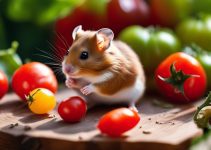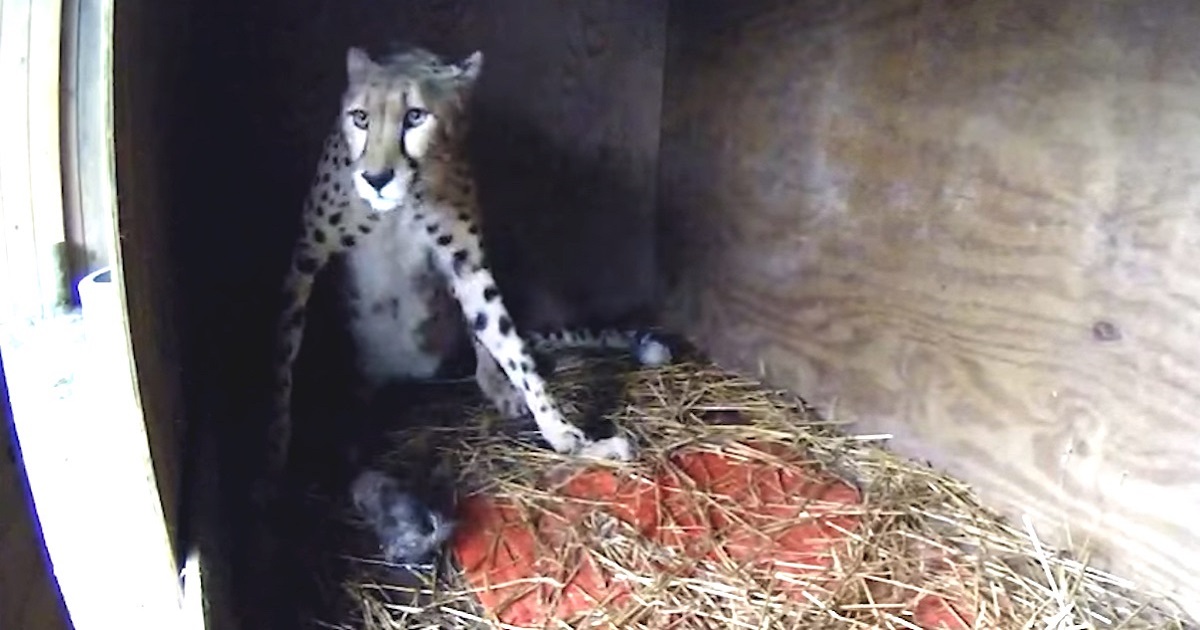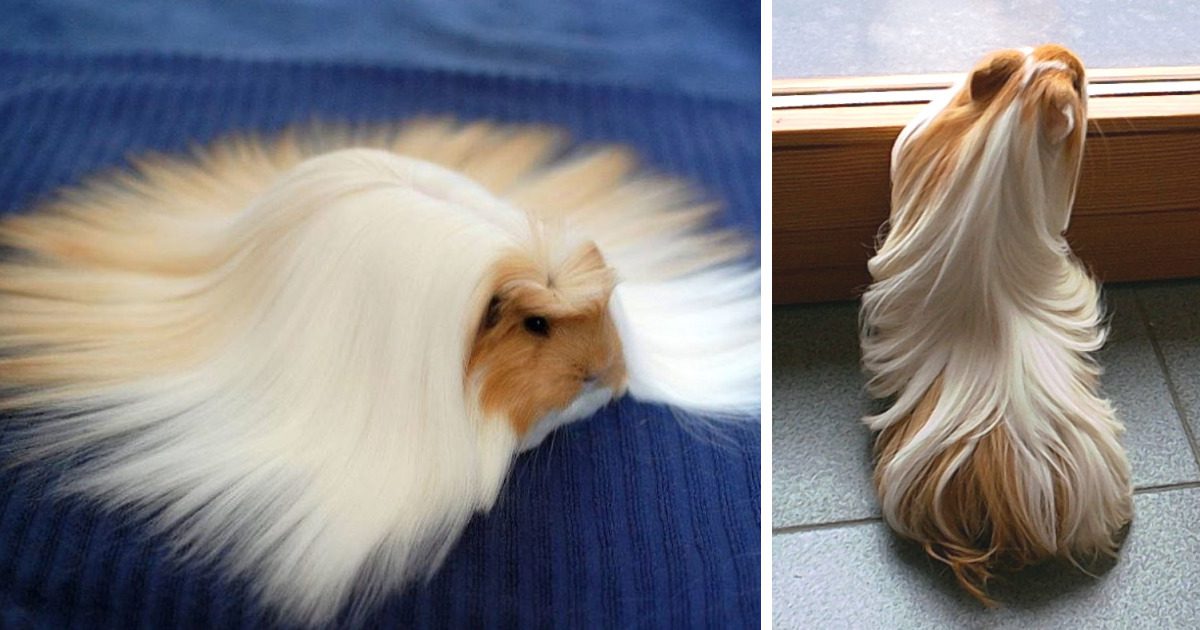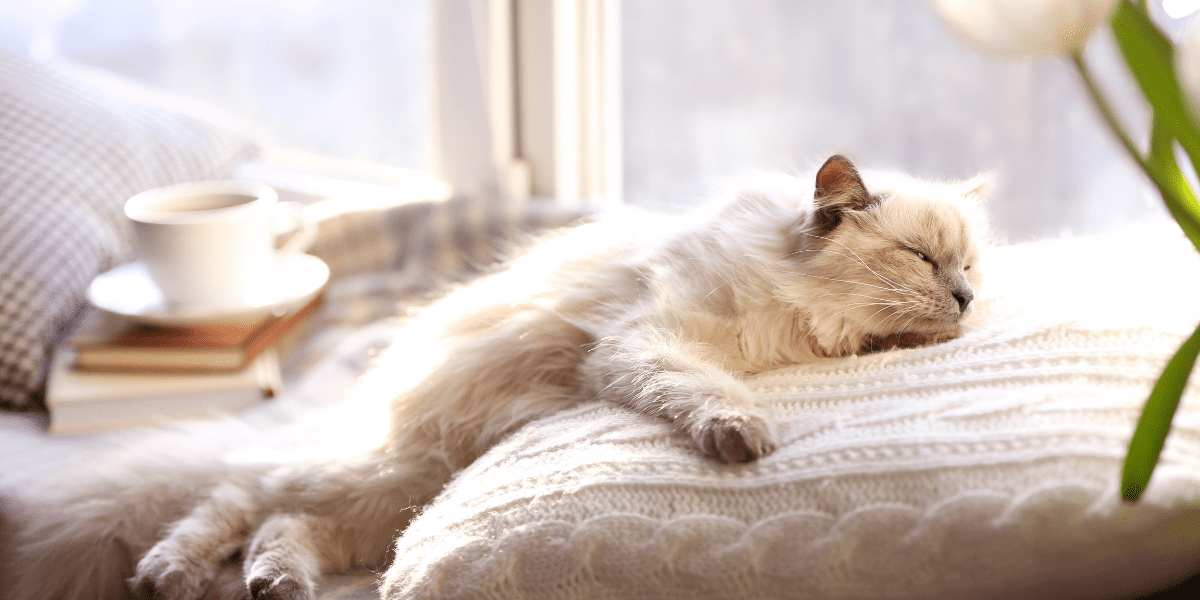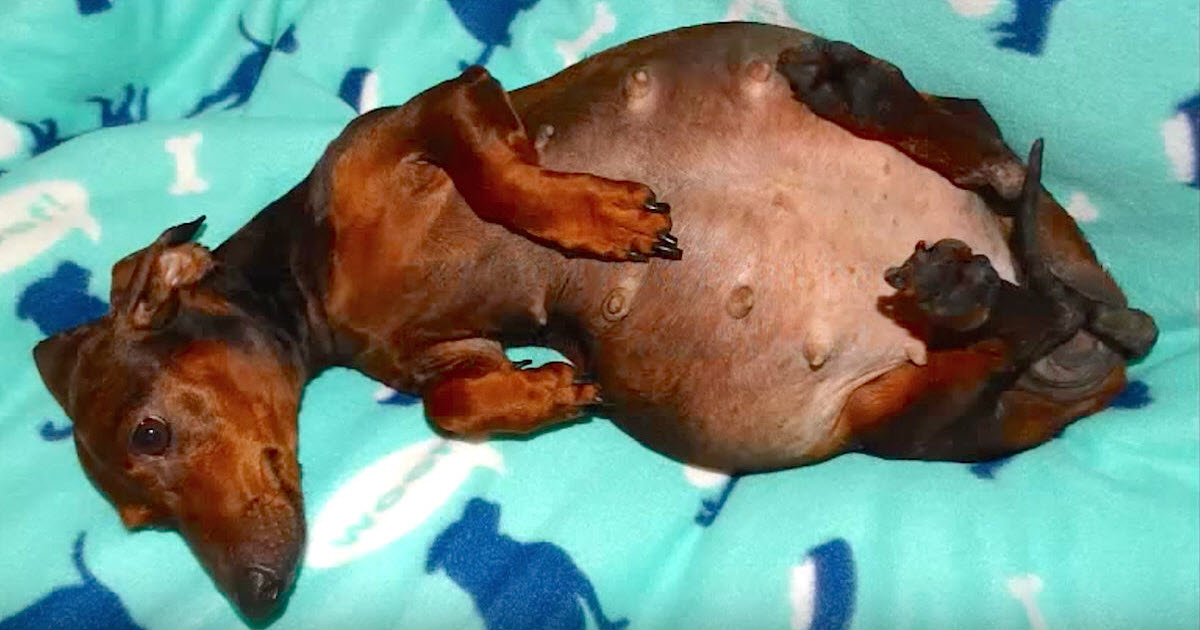When it comes to the diet of our beloved chinchillas, it’s important to provide them with the right balance of nutrients for their overall health and well-being. These furry little creatures are herbivores, which means their diet should consist of plant-based foods. But what exactly do chinchillas eat? Let’s dive into their diet and discover the best food options for these adorable pets.
Chinchillas require a diet that is high in fiber and protein, while being low in fat and moisture. This means their food should contain approximately 35% carbohydrates, 15% protein, 30% fiber, 4% sugar, and no more than 3.5% fat. A constant supply of hay is essential for their digestive health, and they should have access to clean drinking water at all times.
What Do Chinchillas Eat
- Chinchillas are herbivores and require a diet high in fiber and protein, low in fat and moisture.
- A constant supply of hay is essential for their digestive health.
- Chinchillas should have access to clean drinking water at all times.
- Too much fat in their diet can cause liver damage, so it’s important to regulate quantities.
- Treats should be given sparingly, as they are high in fat and sugars.
Chinchilla Diet and Hay
Chinchillas require a diet that is high in fiber to maintain their overall health. One of the best sources of fiber for chinchillas is hay, which should make up the majority of their diet and be available to them at all times.
Hay plays a crucial role in a chinchilla’s digestion and dental health. It aids in the movement of food through their digestive system, preventing blockages and promoting healthy bowel movements. The high fiber content also helps to wear down their continuously growing teeth, preventing them from becoming overgrown and causing dental issues.
When it comes to choosing hay for your chinchilla, opt for low-calcium grass hay, such as Timothy hay or orchard grass. These varieties provide the necessary fiber without the risk of excessive calcium intake, which can lead to bladder stones or other health complications. Alfalfa hay, although high in calcium, can be given in small amounts as a treat due to its higher nutritional value.
It is essential to offer your chinchilla fresh hay daily to ensure its quality and prevent the growth of bacteria and mold. Replace the hay in their enclosure regularly to maintain a clean and hygienic environment for your furry friend.
Chinchilla Pellets and Commercial Food
Chinchillas can benefit from the addition of commercial pellets to their diet. These pellets are specially formulated to provide the necessary nutrition for chinchillas, ensuring they receive all the essential vitamins and minerals they need. When choosing chinchilla pellets, it is important to select a high-quality brand that prioritizes the health and well-being of these delightful pets.
One crucial aspect to consider when purchasing chinchilla pellets is the nutritional content. Chinchillas have specific dietary requirements, so it is essential to choose pellets that are low in fat and high in fiber. Look for pellets that contain approximately 2-5% fat and 15-35% fiber to ensure optimal health for your chinchilla.
Furthermore, it is crucial to avoid pellets that contain artificial colors, preservatives, or added sugars. Chinchillas thrive on a natural and wholesome diet, so opting for pellets that are free from unnecessary additives is essential for their overall well-being.
It is important to note that chinchilla pellets should be given to chinchillas in moderation. While they can provide essential nutrients, they should not replace the majority of their diet, which should consist primarily of hay. Treats and other foods should not be mixed with pellets, as this can lead to imbalances in their nutritional intake and potential health issues.
Chinchilla pellets serve as a valuable supplement to their diet, providing essential nutrients to support their overall health and well-being. When selecting chinchilla pellets, prioritize quality and choose options that are low in fat, high in fiber, and free from artificial additives. Remember to offer them in moderation and alongside a diet primarily composed of hay to ensure a balanced and nutritious feeding routine for your cherished chinchilla.
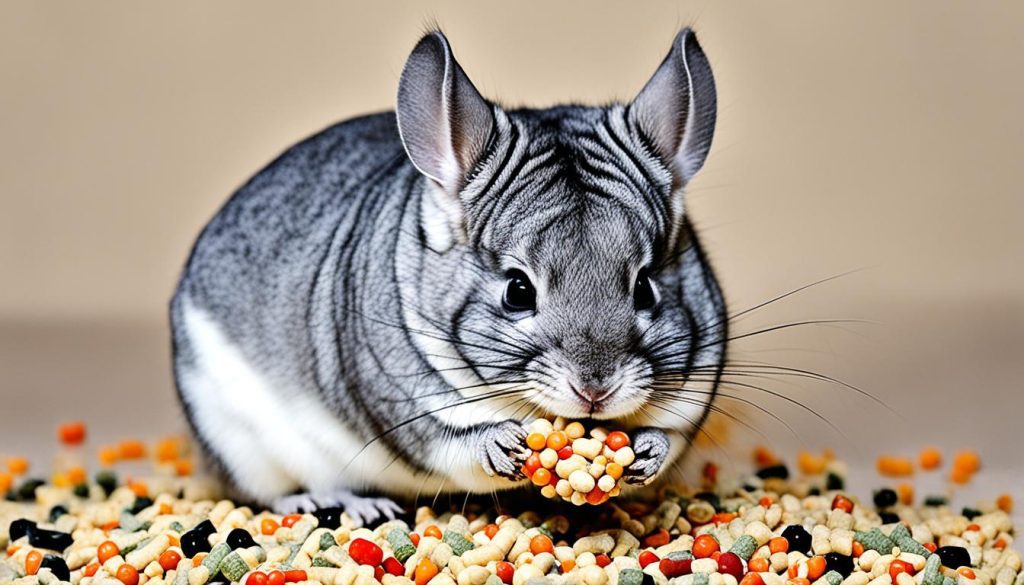
Safe Treats for Chinchillas
If you’re looking to spoil your chinchilla with some tasty treats, there are a few options that are safe and healthy to include in their diet. Dried fruit, such as raisins and sultanas, can be given in small amounts as an occasional treat. These treats provide a sweet and chewy snack that chinchillas enjoy.
In addition to dried fruit, root vegetables are also a safe treat option for chinchillas. Carrots, for example, can be given in small quantities and make a crunchy and nutritious snack for your furry friend. Just be sure to wash and peel the carrots before offering them to your chinchilla.
While treats can be a fun and rewarding addition to your chinchilla’s diet, it’s important to remember that they should be given sparingly. Treats are often higher in fat and sugars compared to their regular diet, so overindulgence can lead to health issues such as liver damage and weight gain. Always keep treats as a small part of their overall diet to maintain their health and well-being.
Remember, it’s crucial to avoid offering treats that are high in fat, such as nuts and seeds. These types of treats can be harmful to your chinchilla’s health. Stick to the safe options mentioned above to ensure your furry friend stays happy and healthy.
Foods to Avoid for Chinchillas
When it comes to the diet of chinchillas, there are certain foods that should be avoided to ensure their health and well-being. It is important to be aware of these foods and to steer clear of feeding them to your chinchilla. Here are some foods that chinchillas can’t eat:
- Cabbage
- Corn
- Banana
- Nuts
- Sunflower seeds
- Lettuce
- Asparagus
- Avocado
- Rhubarb
- Rhubarb leaves
- Peas
- Broccoli
- Spinach
These foods can be harmful to chinchillas and can cause digestive issues and other health problems. It is best to avoid feeding them to your chinchilla to prevent any potential harm. If you are unsure about the safety of any specific food, it is always recommended to consult with a veterinarian for guidance.
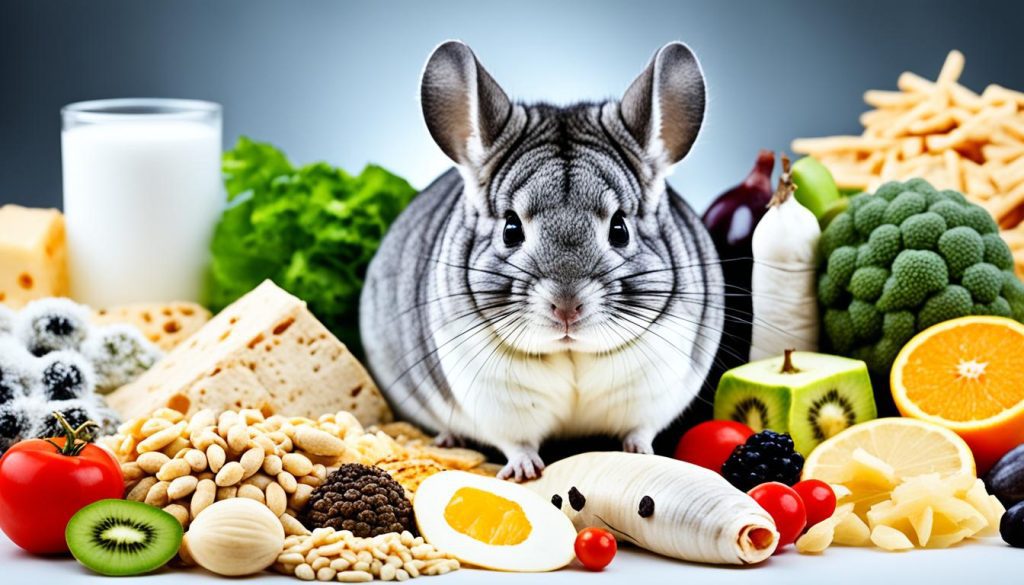
Chinchilla Water Requirements
Proper hydration is crucial for the health and well-being of chinchillas. As a responsible owner, I understand the importance of providing my chinchilla with constant access to clean drinking water.
One common method of offering water to chinchillas is by using a sipper bottle. By hanging the bottle inside the cage, I ensure that the water stays clean and uncontaminated. This also prevents spills and wastage, allowing my chinchilla to drink whenever necessary.
I make it a habit to clean the water bottle daily to prevent the growth of bacteria and algae. Proper maintenance of the water source helps maintain its freshness and ensures that my chinchilla drinks clean water all the time.
Additionally, I replace the water in the bottle with fresh water every day, regardless of the amount left. This ensures that my chinchilla always has access to clean, refreshing water, which is crucial for its overall hydration and well-being.
Conclusion
Providing a proper diet is crucial for the overall health and well-being of chinchillas. As herbivores, they require a diet that is high in fiber and protein, while being low in fat and moisture. Hay should make up the majority of their diet, as it provides essential fiber for digestion and helps maintain dental health. Access to clean drinking water at all times is also essential to ensure proper hydration.
While treats can be given as an occasional indulgence, they should be offered sparingly due to their high fat and sugar content. It’s important to avoid certain foods such as cabbage, corn, banana, nuts, and seeds, as they can be harmful to chinchillas’ digestive system and overall health. If uncertain about the safety of any food, it’s always best to consult with a veterinarian.
By offering a balanced diet, proper hydration, and avoiding harmful foods, chinchilla owners can provide the necessary care needed to keep their furry friends healthy and happy. Prioritizing chinchilla diet and nutrition is a fundamental aspect of responsible chinchilla care, ensuring their overall health and longevity.


